Intro
Discover common 5 MMR vaccine side effects, including measles, mumps, and rubella symptoms, and understand potential risks and complications, such as fever, rash, and allergic reactions.
The MMR vaccine, which protects against measles, mumps, and rubella, is a crucial component of childhood immunization schedules worldwide. Its introduction has significantly reduced the incidence of these diseases, saving countless lives and preventing long-term health complications. Despite its proven efficacy and safety, like any vaccine, the MMR vaccine can cause side effects in some individuals. Understanding these side effects is essential for parents, caregivers, and healthcare professionals to make informed decisions and provide appropriate care.
The importance of vaccines in preventing infectious diseases cannot be overstated. Vaccines work by stimulating the body's immune system to recognize and fight pathogens, such as viruses or bacteria, without causing the disease itself. The MMR vaccine, in particular, has been a cornerstone in public health efforts to control measles, mumps, and rubella. However, concerns about vaccine safety, including the perception of side effects, can sometimes lead to hesitancy among parents regarding vaccination. It's crucial to address these concerns with accurate, evidence-based information to ensure high vaccination rates and protect vulnerable populations.
Vaccine development and safety monitoring are rigorous processes that involve extensive research, clinical trials, and post-marketing surveillance. The MMR vaccine has undergone these processes and has been found to be safe and effective for the vast majority of individuals. Side effects, when they occur, are typically mild and temporary, resolving on their own without the need for medical intervention. In rare cases, more serious side effects can occur, but these are extremely uncommon. Understanding the nature, frequency, and management of side effects can help alleviate concerns and support the continued use of the MMR vaccine as a vital tool in disease prevention.
Common Side Effects of the MMR Vaccine
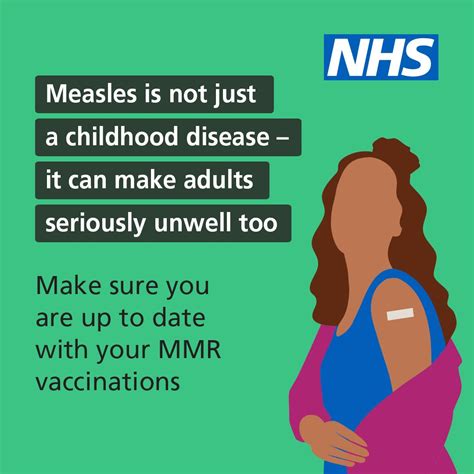
The most common side effects of the MMR vaccine are mild and may include pain, redness, or swelling at the injection site, fever, and a mild rash. These reactions are usually temporary and can be managed with over-the-counter medications or home remedies. In some cases, individuals may experience more systemic reactions, such as headache, fatigue, or irritability, but these are also generally short-lived.
Local Reactions
Local reactions at the injection site are among the most frequently reported side effects of the MMR vaccine. These can include: - Pain or tenderness at the injection site - Redness or swelling - Induration (hardness) at the injection site These reactions are typically mild and resolve within a few days without any specific treatment.Systemic Reactions
Systemic reactions, which affect the whole body, can also occur after receiving the MMR vaccine. Common systemic reactions include: - Fever: Usually mild and temporary - Rash: A mild, non-specific rash may appear in some individuals - Headache - Fatigue - Irritability or fussiness, especially in young childrenLess Common Side Effects of the MMR Vaccine
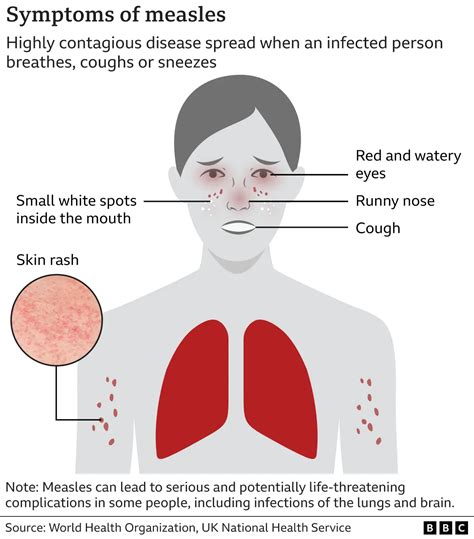
While the majority of side effects associated with the MMR vaccine are mild, there are less common reactions that can occur. These may include:
- Febrile seizures: Although rare, febrile seizures can occur in young children as a result of fever caused by the vaccine.
- Thrombocytopenia: A rare condition characterized by a low platelet count, which can increase the risk of bleeding.
- Anaphylaxis: A severe, life-threatening allergic reaction that requires immediate medical attention.
Anaphylaxis and the MMR Vaccine
Anaphylaxis is an extremely rare but serious side effect that can occur within minutes of receiving the MMR vaccine. Symptoms of anaphylaxis include: - Difficulty breathing - Swelling of the face, lips, tongue, or throat - Abdominal cramps - Nausea or vomiting - Rapid heartbeat Immediate medical attention is crucial if anaphylaxis is suspected.Managing Side Effects of the MMR Vaccine
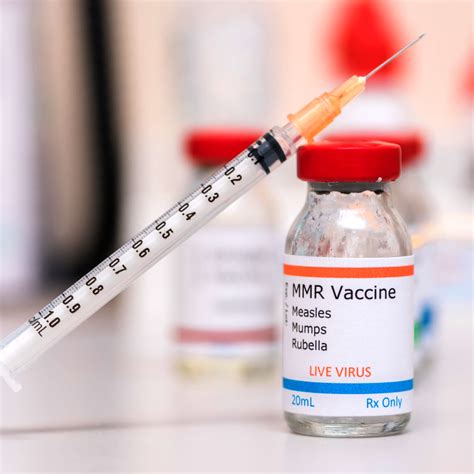
Most side effects of the MMR vaccine can be managed with simple measures:
- Applying a cool compress to the injection site to reduce pain and swelling
- Using over-the-counter pain relievers, such as acetaminophen or ibuprofen, for fever or pain
- Ensuring the individual stays hydrated
- Monitoring for signs of more serious reactions, such as difficulty breathing or severe swelling
Vaccine Safety and Monitoring
Vaccine safety is continuously monitored by health organizations worldwide. The development of vaccines, including the MMR vaccine, involves extensive testing for safety and efficacy. Post-marketing surveillance systems are in place to detect and investigate any potential side effects or adverse reactions that may not have been identified during clinical trials.Benefits of the MMR Vaccine
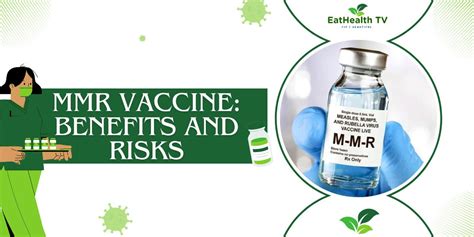
The benefits of the MMR vaccine far outweigh the risks associated with it. By protecting against measles, mumps, and rubella, the vaccine:
- Prevents serious complications of these diseases, such as encephalitis (inflammation of the brain), deafness, and birth defects
- Reduces the spread of these diseases in the community, protecting those who are too young to be vaccinated or have weakened immune systems
- Contributes to herd immunity, which is crucial for preventing outbreaks and eventually eliminating these diseases
Importance of Herd Immunity
Herd immunity is a critical concept in public health that refers to the protection of a community from an infectious disease when a sufficient percentage of the population has become immune to it, either through vaccination or previous infections. This is especially important for individuals who cannot receive vaccines due to certain medical conditions or age. High vaccination rates ensure that these vulnerable individuals are also protected against infectious diseases.Addressing Vaccine Hesitancy

Vaccine hesitancy, or the reluctance to vaccinate, can be influenced by various factors, including concerns about safety, efficacy, and the perceived risk of diseases. Addressing these concerns with accurate, evidence-based information is crucial. Healthcare professionals play a vital role in providing reassurance and guidance, helping individuals make informed decisions about vaccination.
Role of Healthcare Professionals
Healthcare professionals are key in promoting vaccine confidence and addressing concerns about vaccine safety and efficacy. They can provide personalized advice, discuss the benefits and risks of vaccination, and offer support in making informed decisions. Their role in maintaining high vaccination rates and public health is indispensable.Conclusion and Future Directions
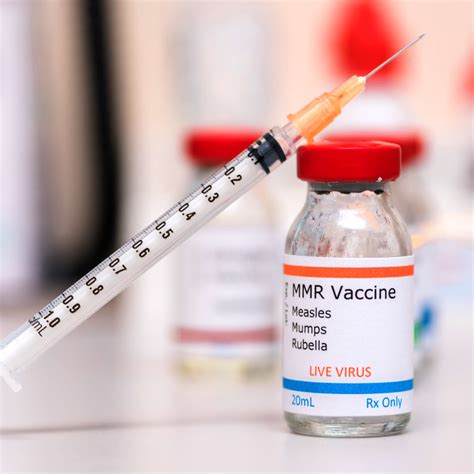
In conclusion, while the MMR vaccine can cause side effects, the vast majority are mild and temporary. The benefits of vaccination in preventing measles, mumps, and rubella, along with their potential complications, are well-documented and widely recognized. Ongoing research and surveillance continue to improve our understanding of vaccine safety and efficacy, guiding future developments in vaccine technology and public health strategies.
As we move forward, it's essential to maintain open dialogue about vaccine safety, address concerns with evidence-based information, and support efforts to achieve and maintain high vaccination rates globally. By doing so, we can protect not only individuals but also communities, ensuring a healthier future for generations to come.
What are the most common side effects of the MMR vaccine?
+The most common side effects include pain, redness, or swelling at the injection site, fever, and a mild rash. These reactions are usually temporary and can be managed with simple measures.
Can the MMR vaccine cause serious side effects?
+While rare, serious side effects such as febrile seizures, thrombocytopenia, and anaphylaxis can occur. Immediate medical attention is required if any severe symptoms are observed.
How is the safety of the MMR vaccine monitored?
+Vaccine safety is continuously monitored by health organizations worldwide through extensive testing and post-marketing surveillance systems to detect and investigate any potential side effects or adverse reactions.
We invite you to share your thoughts, experiences, or questions about the MMR vaccine and its side effects in the comments below. Your engagement helps us better understand the concerns and needs of our readers, allowing us to provide more relevant and helpful information in the future. If you found this article informative, please consider sharing it with others who might benefit from this discussion on vaccine safety and the importance of immunization.
